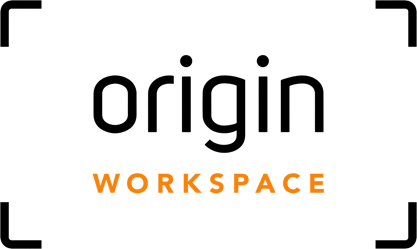






According to new research, Bristol is set to be one of the UK’s fastest growing cities over the next three-years, outpacing London and Birmingham. It’s an interesting statistic that I’m hearing more and more frequently, and it’s certainly one that will affect the members of Origin Workspace. Keen to find out how Bristol businesses looking to grow could prepare for the challenge, I attended a local business networking event focusing on The Future of Talent in Bristol as part of the Origin Workspace social squad to find out more.
The #mylinkedinlocal event was held on 15thMay at the M Shed from 6-9pm, offering the opportunity to collaborate, discuss pertinent issues for Bristol and share experiences and expertise. Hosted by Philippa Haynes, The Future of Talent in Bristol brought together a range of keynote speakers to focus on innovative approaches to solving the skills gap.
The evening started with a bit of networking, and the opportunity to enjoy the evening sunshine and views over the harbourside from the second floor balcony.
Initially reluctant to leave the warmth of the sun, we moved inside where Philippa welcomed us and introduced the key themes of the evening. She urged us to consider what the changes to the world of work would mean and to look at what the opportunities presented meant for us as small businesses.
First to speak was Darren Clark, Co-Founder of The Spotless Group. Darren came from a retail management background and gave up the corporate sector to start his initial company Spotless Spaces. Seven years on and Darren is an entrepreneur with several businesses within The Spotless Group.
Darren spoke passionately about investing in learning, and how his own experiences of soaking up knowledge “like a sponge” made him look at the time that had been invested in him and how he could put this into his employees. He used Alice as a case study; one of his employees who had started as an admin assistant. Seeing the potential she had to give, she was invested in with time and courses, providing an opportunity for growth. She is now the MD of two cleaning companies.
Darren referred to the “immense amount of skills out there” and suggested creating jobs for people, and looking at how to implement them into your business. When recruiting, look internally and see which staff you can push in different directions. He acknowledged that it doesn’t always work but it is worth trying. His staff retention is brilliant, which shows that he is clearly doing something right.
If looking to grow your team as a small business, the key piece of advice that Darren had was to invest in your own employees before looking externally (like we might with traditional recruitment) for someone to fit the skillset you are looking for.
Next to speak was Mark Dawe, CEO of the Association of Employment and Learning Providers (AELP). The AELP represents over 850 members – independent training providers, colleges, universities, employers and end point assessment organisations. From Mark I learned about apprentices and the value that they can add to a business.
Of Mark’s 23 staff, three are 16-23 year old apprentices. He spoke admirably about the amount of knowledge they have, but about how they don’t know how to apply this knowledge to business. He was very clear about the fact that having apprentices in your business is a two way process where both sides can benefit.
If you’re thinking about growing your business to meet the needs of a growing #Bristol then listen up #Apprenticeships are for your current employees too and are also a great option for #soletraders who are looking to up-skill and build a team #MyLinkedinLocal pic.twitter.com/z0aclI7fgJ
— Philippa Haynes (@phaynes101) May 20, 2018
Mark’s key message was about how employers need to change their mind-sets in order to get the most out of what apprentices can offer. Degree apprenticeships in particular are a great opportunity for employers as it encourages new people into the business, you can train them from the start, and the apprentice will still get a degree at the end of the scheme.
I knew the apprenticeship landscape was changing, but not how it could be useful to businesses of all sizes, or that there was a level of financial support that you could receive from the government in return.
The main takeaway from Mark for small businesses looking to grow over the next few years was to take on apprentices as employees. If looking to recruit an entry-level employee it appears that companies should be looking to take apprentices rather than those with more traditional qualifications.
Charlotte Bosworth, MD of Innovate Awarding, an awarding body providing vocational qualifications to colleges, training providers and employers, rounded off the topic of apprentices. She described the huge growth they’ve had engaging with apprenticeships and how the mind-set of fresher members of staff has helped with the transition to newer ways of working, such as using social media. Initially having taken on one apprentice, Charlotte will be going on to take a further five next year.
The main thing I took from Charlotte was how small businesses can benefit from a new skillset by taking on an apprentice. By making a member of staff responsible for the apprentice, you also give an opportunity for an existing member of staff to gain some management experience. Again, the emphasis was on training someone with the right attitude and values for your business, rather than recruiting someone who already has the skills you are looking for.
The final talk of the evening was delivered by Charlie Widdows, Co-founder of Solverboard. Charlie started to look at the challenges of the future of work brought about through megatrends and the velocity generation.
The clear takeaway from the evening was thinking beyond traditional channels of recruitment and looking at the value that apprentices can bring to businesses of all sizes. Iwas left full of ideas about what this could mean for the future.
If you enjoyed our event review focusing on what the future of talent will look like in Bristol, we were also inspired by an event focusing on the Women who Built Bristol.
Find out more about our events programme and follow us on social to see the next events we’ll be attending.


Kalvinder Kour
Marketing Manager


Kalvinder Kour
Marketing Manager


Kalvinder Kour
Marketing Manager